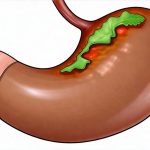The modern workplace often demands peak performance, long hours, and relentless focus. While striving for success is admirable, it frequently comes at a cost – particularly concerning our physical well-being. One surprisingly common, yet often unspoken, consequence of high-stress work phases is constipation, manifesting as hard stools and difficulty with bowel movements. This isn’t merely an inconvenience; it’s a signal that the intricate connection between mind and body is under duress. Ignoring these signals can lead to more serious health issues down the line, impacting productivity and overall quality of life.
Understanding why demanding work environments contribute to digestive upset requires recognizing the physiological mechanisms at play when we experience stress. Our bodies are designed for “fight or flight” responses, which redirect energy away from non-essential functions like digestion. Chronic activation of this system, prevalent in high-pressure jobs, disrupts normal bowel function and alters gut motility. Furthermore, lifestyle changes often accompanying increased work demands – irregular meal times, poor food choices, dehydration, reduced physical activity – exacerbate the problem. It’s a complex interplay between psychological stress and its tangible physical effects. If you find yourself struggling with these issues, consider exploring meal adjustments to help manage your symptoms.
The Stress-Gut Connection: A Deeper Dive
The relationship between stress and digestive health is profoundly bidirectional. This means not only does stress impact the gut, but the state of our gut also influences how we experience stress. The gut microbiome, the vast community of bacteria residing in our intestines, plays a vital role in this interaction. Stress can negatively alter the composition of the microbiome, reducing beneficial bacteria and fostering an environment conducive to inflammation. This dysbiosis (imbalance) can contribute to increased intestinal permeability – often called “leaky gut” – allowing toxins and undigested food particles to enter the bloodstream, further amplifying inflammatory responses throughout the body.
This physiological cascade impacts bowel movements in several ways. Stress hormones like cortisol suppress digestive processes, slowing down peristalsis (the wave-like muscle contractions that move food through the digestive tract). Simultaneously, stress can increase intestinal permeability and alter fluid absorption, leading to harder stools that are more difficult to pass. The brain-gut axis, a complex communication network linking the central nervous system with the enteric nervous system (the “second brain” in our gut), is constantly relaying information back and forth. This means emotional states directly influence digestive function, and vice versa. Understanding your individual gut health can be improved by looking into digestive tests available today.
Consider also the behavioral aspects. Individuals under significant work pressure frequently experience:
– Increased consumption of processed foods for convenience
– Decreased intake of fiber-rich fruits and vegetables
– Reduced water intake due to busy schedules
– A tendency to “hold it in” during critical moments or meetings, disrupting natural bowel habits
These factors collectively contribute to the development of hard stools and constipation. Addressing this requires a holistic approach that acknowledges both the psychological and physiological components. Recognizing how intense focus might also play a role can be helpful too.
Identifying Stressors & Implementing Boundaries
Pinpointing the specific stressors contributing to your digestive issues is the first crucial step toward improvement. This isn’t always easy, as work-related stress can be insidious. It’s important to move beyond simply acknowledging “I’m stressed” and delve into what specifically triggers these feelings. Is it looming deadlines? Difficult colleagues? A constant fear of failure? Excessive workload?
Self-reflection is key. Keeping a journal, even for a short period, can help identify patterns and pinpoint the root causes of your stress. Once identified, focus on establishing healthy boundaries:
1. Learn to say “no” to additional tasks when already overloaded.
2. Schedule regular breaks throughout the workday – even five minutes can make a difference.
3. Clearly define work hours and avoid checking emails or working outside those times as much as possible.
4. Delegate tasks when feasible and appropriate.
These boundaries aren’t about being unproductive; they’re about preserving your well-being and preventing burnout, which ultimately benefits both your health and your performance. Prioritizing self-care is not selfish; it’s essential for sustainable success. It’s also important to recognize that setting boundaries may require assertive communication with supervisors or colleagues, but it’s a necessary step toward protecting your physical and mental health. Managing stress can sometimes involve reflux checks as well.
The Role of Diet & Hydration
Diet plays a pivotal role in managing constipation. A diet lacking in fiber is a major contributing factor to hard stools. Fiber adds bulk to stool, making it easier to pass, and also promotes healthy gut bacteria. Aim for at least 25-30 grams of fiber per day from sources like:
– Fruits (berries, apples, pears)
– Vegetables (broccoli, spinach, Brussels sprouts)
– Whole grains (oats, quinoa, brown rice)
– Legumes (beans, lentils)
Gradually increase your fiber intake to avoid bloating and gas. Equally important is adequate hydration. Water softens stools and facilitates their movement through the digestive tract. Dehydration exacerbates constipation, making stools even harder. Aim for at least eight glasses of water per day, more if you’re physically active or in a hot environment.
Beyond fiber and hydration, consider incorporating probiotic-rich foods into your diet (yogurt, kefir, sauerkraut) to support a healthy gut microbiome. Reducing processed foods, sugary drinks, and excessive caffeine can also significantly improve digestive function. Small dietary changes, consistently implemented, can yield substantial benefits over time. It’s important to choose the right foods for your body’s needs.
Mindful Movement & Stress Reduction Techniques
Physical activity is another crucial component of managing stress-related constipation. Exercise stimulates intestinal motility, helping to move food through the digestive tract more efficiently. Even moderate exercise, such as a 30-minute walk each day, can make a significant difference. However, avoid intense exercise immediately after eating, as this can disrupt digestion.
Beyond physical activity, incorporating stress reduction techniques into your routine is paramount. Techniques like:
– Deep breathing exercises
– Meditation or mindfulness practices
– Yoga or tai chi
– Spending time in nature
can help calm the nervous system and reduce cortisol levels. These practices not only alleviate stress but also promote a sense of well-being that can positively impact digestive health. Learning to manage stress effectively is an ongoing process, but it’s one that yields dividends far beyond improved bowel function. Investing in your mental and emotional health is investing in your overall health. Remember, seeking support from friends, family, or a therapist can also provide valuable coping mechanisms during challenging times. For those navigating life transitions like menopause, gut checks are particularly helpful for understanding bodily changes.


















